President Rafael Correa participates in farewell honors to the President of the People’s Republic of China, Xi Jinping © Wikicommons
You find heaven wherever you choose to look in China. ‘Tiān’ (天)means heaven – more-or-less – just as the word ‘heaven’ in English can mean either the firmament (home to the sun, stars and cosmos) or the dwelling place of a god or gods. The whole vast pantheon of Chinese deities is perplexing; there are so many gods and monsters involved. As a child, I used to love visiting the house of my cleverest relative by far, my great uncle, who, together with his equally clever French wife, had lived in Singapore and other parts of the Far East, amassing a vast collection of books, many of which he kindly gave to his schoolboy nephew (me) to aid with my studies and varied interests. But his house was also full of what must be called ‘Chinese art’, I suppose: wooden and ivory sculptures of deities and demons, which I found somewhat intimidating and rather scary, at least when I was very small. Sadly, his son, a New York-dwelling but much-travelled writer, threw them all out in a fit of pique when he died, which was a shame. I would have liked to have kept at least one small one as a memento. Let’s just take a brief look at China’s gods, however, many of whose names include the word Tiān (天).
There’s Tiāndì (天帝), which means God or emperor of Heaven. How about Tiānzhǔ (天主), which used to be, it seems, regarded as the title of the first god from whom all the others evolved or descended (or whatever it is gods are supposed to do). There’s another separate deity name, Tiānhuáng (天皇), which could be interpreted as ‘King of Heaven’, and more that are similar: Tiāngōng (天) the “Duke” or “General” of Heaven, Tiānjūn (天君), meaning “Prince” or “Lord” of Heaven, and so on and so forth; you get the drift, I’m sure. And that most famous of Beijing landmarks, Tiānanmen Square, means ‘The Square of the Gate of Heaven.
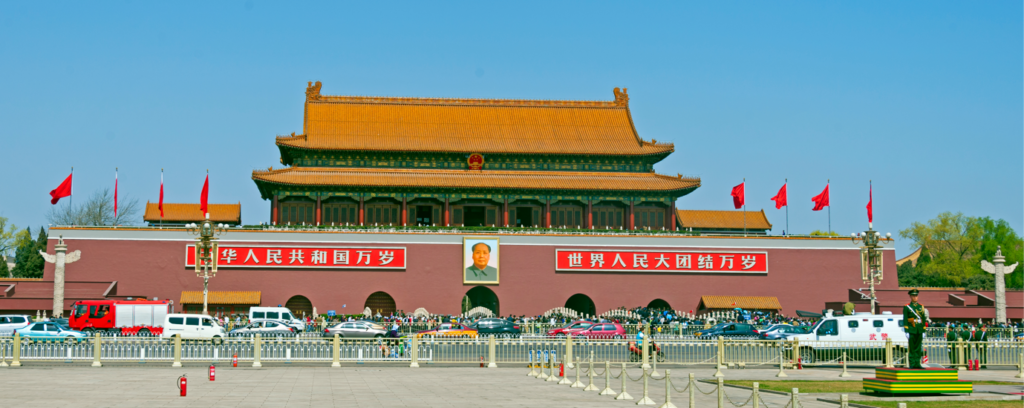
It could be argued that in 1989 quite a few protestors against the Chinese government of the time found their way to Heaven there, or perhaps to Hell, helped on their way by the 5.8mm rounds of the People’s Liberation Army Kalashnikov-based assault rifles. The various gods differ in terms of importance for those Chinese people who believe in them at all (religion is discouraged in secular China), forming a complicated hierarchy, not unlike, one could say, the hierarchy of the Chinese Communist Party (CCP). Now the current leader, Xi Jinping, has joined the ranks of the CCP’s own hierarchy, alongside Mao Zedong and Deng Xiaoping. They’re not quite seen as gods in this secular, atheistic country, but their status is remarkably similar.
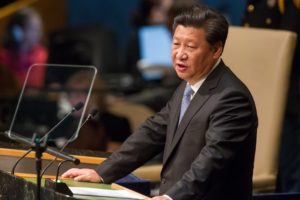
In fact, Xi Jinping has organised a clamp-down on religion in China, although its replacement – officially-approved thought – is somewhat like Christianity was during the religious purges of the early middle ages or like Islam, as practised by the Taliban today. There’s no leeway given for individual interpretation: Xi’s word is law! He is currently engaged in trying to purge China of capitalism’s more extreme sectors. But he has certainly turned quite hostile towards freedom of religion. Various methods of suppression are being deployed, such as compelling independent churches to join religious organisations that are run by the CCP. The government also tries to suppress the transmission of religious education from one generation to another, whilst seeking to isolate Chinese Christians from like-minded followers in other countries.
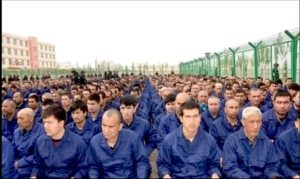
It is also illegal to see the Bible there. Being religious in China isn’t easy: in August 2021, both the pastor, Wang Xiaoguang, and preacher Yang Rongli at the so-called Golden Lamp Church in Linfen, a Christian place of worship in the province of Shanxi, were arrested by police. This came shortly after a thorough investigation by China’s Rights Defence Network of the church, its members and its leadership. The church, it seems, had repeatedly declined to put itself under the control of the government-approved Three-self Patriotic Church, a supposedly Protestant body but under strict CCP control. Just to emphasize the governmental grip on matters spiritual, pensions and health insurance payments for the church’s leaders have been withheld. Back in May 2021, Zhao and his wife Li were summoned by police and charged with ‘religious fraud’, while their mobile phones and other personal items were taken away. Li was released after questioning, but Zhao was given 15 days of ‘administrative detention’. There are plenty of other examples of China’s attempts to suppress religious faith, and in a number of places children are forbidden to attend church or other organised religious activities, including summer camps. In a speech he gave in 2016, Xi called on the government to ‘manage’ religion by persuading the faithful (of whatever faith) to love their country more by giving greater support to the CCP and Socialism.
DRAGON HUNTING
What about dragons? Chinese leadership has long been associated with these legendary and mystical creatures. In old paintings, of course, they look very different from the dragons of western mythology, with long, sinuous bodies, the dragons themselves coming in nine varieties. Long ago, Chinese emperors were closely identified with dragons and were even referred to as “sons of dragons” (women had to manage without one, it seems). Even dragons were guilty of sexism. Back then, only emperors could wear clothing that bore a dragon emblem. Ordinary people were not considered important enough. That has to mean that even Xi Jinping must have a dragon symbol of some kind. With nine types of dragon to choose from (or seven or twelve, depending on what work of reference you choose), what variety would most suit this most honoured of leaders? It’s worth examining a list of types.
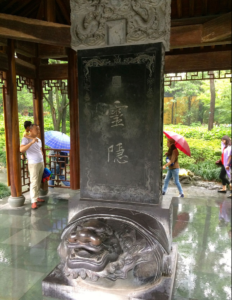
Xi could hardly be Bixi, a turtle-shaped dragon with sharp teeth, mainly associated with graveyards and tombstones. Qiúniú would seem inappropriate, too. He (it?) is a yellow scaly dragon that likes music. Perhaps we’re getting close with Yázì, with his leopard-shaped head and snake belly, who is keen on fighting and killing. For a more adventurous (and less single-minded) dragon, how about Cháofēng, an adventurous dragon whose image often adorns palace roofs? I think we can forget Púláo, who is associated with loud crying, which is why he’s often seen on bell handles. Chīwěn also has a harsh voice but lives in the sea, although he likes to devour other creatures, so he’s a strong candidate. Even Bì’àn must be in the running, with his love of legal process and lawsuits. The lion-shaped Suānní is probably not a candidate, sitting cross-legged as he is often pictured, and smelling of incense. He’s popular at Buddhist temples, while Fùxì invented writing, according to legend, as well as fishing and the domestication of animals. I think that leaves us with Xi being some sort of hybrid, perhaps between Yázì (睚 眦) and Chīwěn (螭 吻): an aggressive chap, keen on fighting, who also likes to devour his foes. How one can square his leopard head and snake belly with being aquatic in nature – a marine creature, indeed – I’m not quite sure.
The main concern in the West is that Xi’s ambitions seem to stretch beyond the boundaries of China itself. Some expert observers suggest that China is making use of the divisions in Europe to strengthen its own position. It’s a matter of concern because Europe needs inward investment (what country doesn’t?) but where China is involved, this invariably comes at a price.
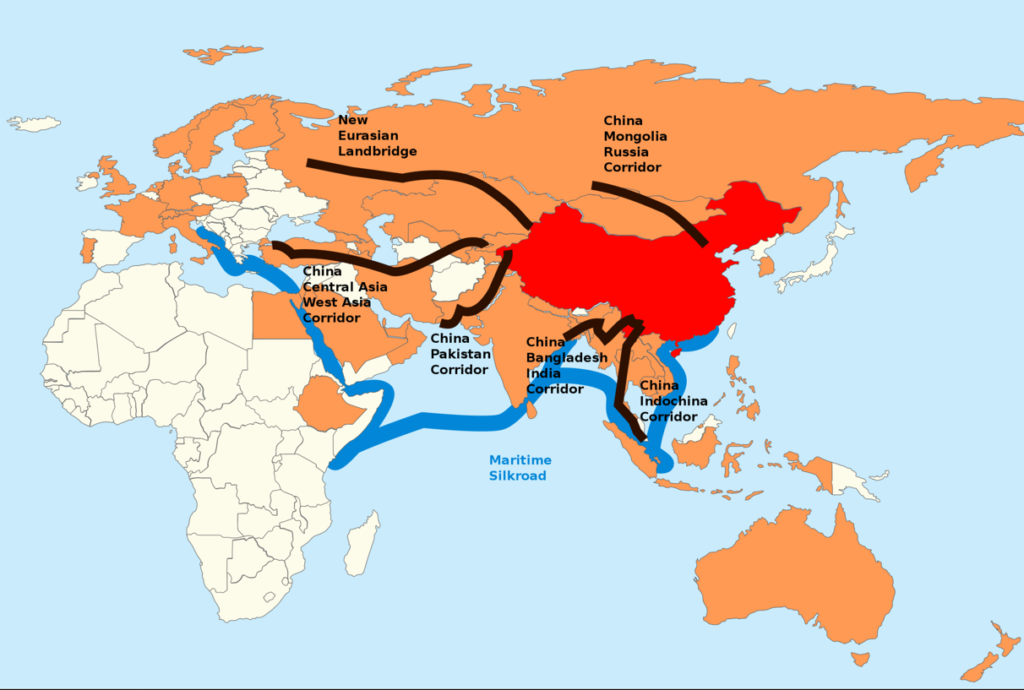
Xi is still very keen on his One Belt One Road (OBOR) project, aiming to construct a modern version of the Silk Road, linking East and West, and to that end in 2012 Xi launched what he called “17+1”, although it has now shrunk to “16+1”. Launched (surprise, surprise) in Budapest, it’s aimed at promoting the OBOR scheme. In March 2021, Lithuania withdrew from the scheme, arguing that it could see no benefit in continuing to play a rôle. The scheme aimed to develop closer ties commercially and culturally, although it looks to outsiders suspiciously like Beijing trying to buy influence in countries uncertain about their own futures.
Among the schemes that China looked likely to help finance are the Budapest to Belgrade railway line, the E763 highway project in Serbia, running from Belgrade to Bijelo Polje in Montenegro, and the China-to-Europe land-sea Express Line as well as providing Chinese assistance with Croatia’s Pelješac Bridge through a consortium headed by the China Road and Bridge Corporation, inevitably linked with the OBOR scheme. Meanwhile, Chinese companies acquired the civil engineering machinery division of Huta Stalowa Wola as well as KFLT Bearings, another Polish company.

Such inward investment is obviously very tempting for countries that are not exactly rolling in development cash. Some are wondering, though, if this doesn’t hand a little too much power and influence to Beijing. As it is, a book about China’s European ambitions, “China’s Offensive in Europe” has just been published, jointly written by Philippe Le Corre, a Visiting Fellow at the Brookings Institute, and an Associate Research Fellow at IRIS (Interdisciplinary Research & International Strategy Institute), Alain Sepulchre. They write that China finds Europe a tempting target because it is politically divided and yet still far from China’s main competitor for global influence, the United States.
KEEPING THE RED FLAG FLYING
Le Corre and Sepulchre point out that China has already offered to participate in the European Strategic Investment Fund, a European Commission scheme to help fund a relaunch of European infrastructure and China’s contribution looks like becoming the ESIF’s largest non-European component. However, the authors argue that there is a serious and on-going attempt by China to cause further division in Europe. Wall Street Journal, quoting an interview with the authors recorded in 2016, point out that: “A typical example is the ‘16+1’ group created by China and sixteen Eastern and Central European countries in 2011,” they replied. “Once a year, leaders of these countries meet with Chinese premier Li Keqiang. Last year (2015 in this instance) in Suzhou, they also met with President Xi Jinping. Seven countries signed memoranda of understanding with China on ‘one-belt, one-road’. Three of them hosted Mr. Xi recently and were offered substantial Chinese investment promises.” These are the sorts of promises that relatively poor Central and Eastern European countries can scarcely afford to ignore. Philippe Le Corre and Alain Sepulchre authors of “China’s Offensive in Europe” reassured the Wall Street Journal that there is no ‘master plan’ for China to take over Europe but its help in the past has paid dividends. During the Euro-debt crisis of 2008-2009, China started buying into European infrastructure projects, such as Athens’ vital Piraeus Harbour. It now controls it. With OBOR, China is buying influence in Europe, one country at a time while offers of inward investment are hard to resist, the downsides often hard to spot. It’s worth remembering that having subtly encouraged the UK to split away from the EU with vague promises of financial partnership and investment, China now find the UK of much less interest to Beijing than the rest of the bloc (and its 450-million consumers, of course) from which it is now divorced.
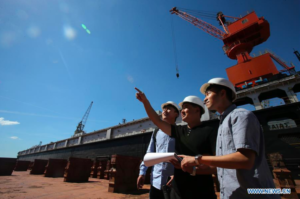
Within China itself, Xi is waging a war of his own against capitalism’s excesses. Increasing debt, he believes, comes about through financial speculation and is fed by billionaires, which China lacked until relatively recently. Xi seems to fear another monster from Chinese mythology: the Taotie (饕餮), or the glutton, which would eat anything within its sight, including its own body. That’s why it is normally depicted as nothing more than a big head and a large mouth but with no body. According to mythology, it ate so much that it killed itself through over-eating and is now used as a symbol for greedy people. On the surface, Xi’s campaign looks to be soundly based, moral and wise. For instance, his officials began by blocking a public offering by Ant Group, which is connected with the tech giant, Ali Baba. Then the ride-hailing service Didi listed its shares in America, for which it was punished. A large property developer that was already in debt is now being pushed towards defaulting (more on that later).
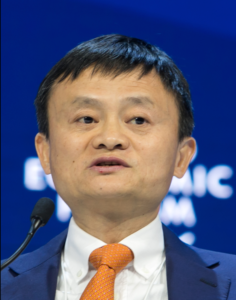
Xi banned trading in cryptocurrencies, while on-line gaming is being rationed for children because Xi thinks it’s a dangerous pastime. Abortion is being firmly discouraged because China needs larger families, while male rôle models have to be manly and its celebrities must be patriotic. “This,” writes The Economist, “comes on top of an already brutal authoritarianism. As president, Mr. Xi has purged his rivals and locked up over a million Uyghurs.” The Economist poses the question, whether Xi is “an idealogue bent on grabbing power for himself, even if it slows growth and people suffer, or whether he is a strongman willing to temper dogma with pragmatism.” On that point, the jury is still out, it seems. Only future generations will be able to judge Xi’s overall performance fairly.
The ban on trading in cryptocurrencies is especially odd, because China has now adopted one as its official currency. China, in an unprecedented move, just announced that it is officially adopting a certain cryptocurrency as China’s official coin, according to Forbes. “A major worldwide government,” the website proclaims, meaning China, “has just bestowed a huge vote of confidence and legitimacy onto the world of cryptocurrencies. China, in an unprecedented move, just announced that they are officially adopting a certain cryptocurrency as China’s official coin!” Forbes urges everyone to buy into it. Backed by mighty China, it can only rise. “The government of China,” it says, “just informed that they have chosen a preferred firm for the purchase and marketing of their new coin – YuanPay Group. The sales of China’s coin officially started October 3 of 2021 and currently these coins can be bought only from YuanPay Group. In fact, China deputy minister of finances, Liu Kun, informed that their new official coin stating price is just CNY 0.12!” (One Yuan is worth €0.13 at time of writing). It’s predicted that purchasers could become quite obscenely wealthy very quickly. Buying into it sounds sensible but Xi is an unpredictable man whose actual motives are generally very hard to judge.
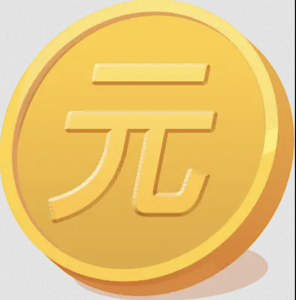
In fact, it’s been said by some observers that Xi is trying to transform China’s entire economy into something Mao Zedong would recognise and of which he would approve. It’s a tactic that is scarcely worry-free, however. Brave and charismatic Mao may have been, but he was no economist and Xi’s latest actions would seem to pose risks to investors because, it’s alleged, of a lack of any suitable rule of law and legal protection for property and private capital. Some, including the Maritime Fairtrade website, claim that Xi “is making the already-tense economic situation even worse.” However, Xi seems determined to put an end to inequality, a goal of which Mao would surely have approved. Xi’s slogan is “common prosperity”, although it’s not really very common anywhere. According to Maritime Fairtrade’s website, “He (Xi) is weaponizing a new generation of Red Guards to attack foreign interests and domestically, he uses Maoism to rally the people behind him to eradicate rivals and to consolidate his political power. In Xi’s narrative, only another revolution can rescue China from ‘imperialists’ and ‘domestic exploitation’ by foreign businesses.” It’s an ambitious programme, but Xi seems as immoveable and as implacable as Mao, his expression just as unreadable.
China seems to have looked carefully at the European market and noted its difficulties, especially those that have created niches for Chinese manufacturers. Take the arrival of electric vehicles, for instance. What puts off many potential European buyers is the enormous purchase price. According to Yahoo! News finance, the average price of a vehicle in Europe has increased from a little over €33,000 in 2012 to more than €42,500 this year, an increase of 28%. Meanwhile, the average price of a new electric car in China has gone down over the same time period by around 47%, from almost €42,000 to just €22,000 over the same period. Europeans are also worried by the relatively small range that electric cars can go without being recharged and also the relative shortage of available charging points. China spotted a business opportunity and is exploiting it.
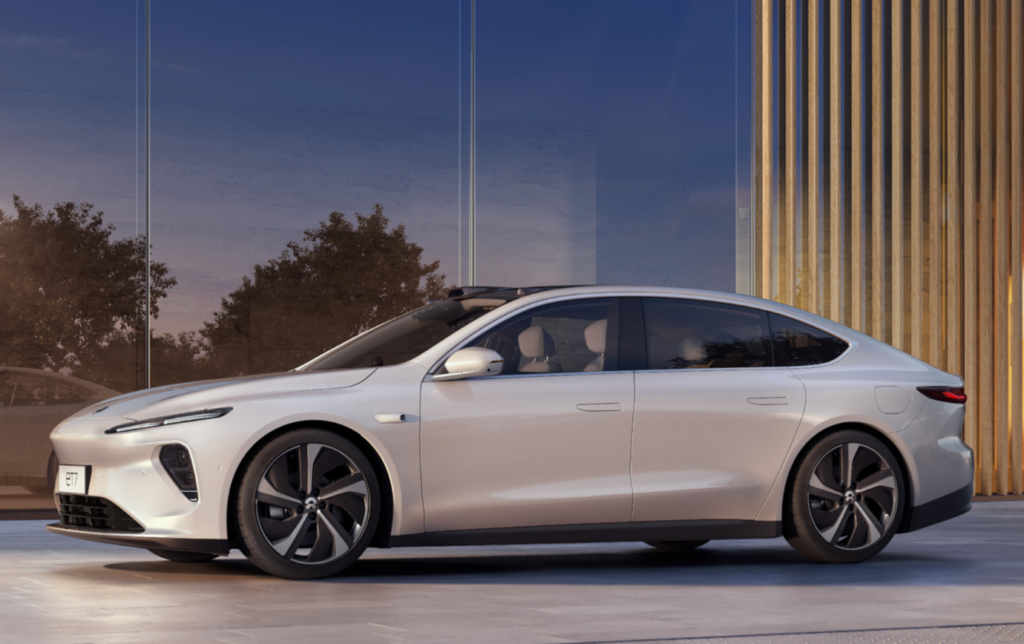
Individual countries in Central and Eastern Europe have never been of much concern to Chinese foreign policy but taken together they form a useful foundation for increased Chinese presence in Europe as a whole. The Belt and Road project has boosted those links since its launch in 2013. They may not be vital to Beijing’s interests on their own, but Belarus, Ukraine, Moldova, Azerbaijan, Armenia and Georgia are all playing pieces in a long-term game, and China is playing them subtly and cleverly, as a means of weakening the influence of the United States. Xi is clever enough to play the long game, placing his pieces with care in order to undermine the West’s influence and power. The Centre for Strategic and Budgetary Assessments (CSBA) suggests that the West should be concerned. “Europe has emerged as a key battleground in the Chinese Communist Party’s (CCP’s) global campaign for political influence,” it writes in a report on growing Chinese influence. “This study adds to the budding literature on CCP influence in Europe by focusing narrowly on one element of the Party’s multifaceted worldwide campaign: the role of friendship groups. ‘China friendship groups’ vary in composition and mission. In general, they are associations comprising political, business, and other elites within a defined foreign territory that seek to promote closer bilateral relations with China.” The concept of ‘Friendship groups’ sounds innocent enought. “To jaw-jaw is always better than to war-war,” said Sir Winston Churchill in a 1954 speech at the White House, as reported in the New York Times. However, the CSBA warns that these groups may not be quite so innocent as the context suggests.
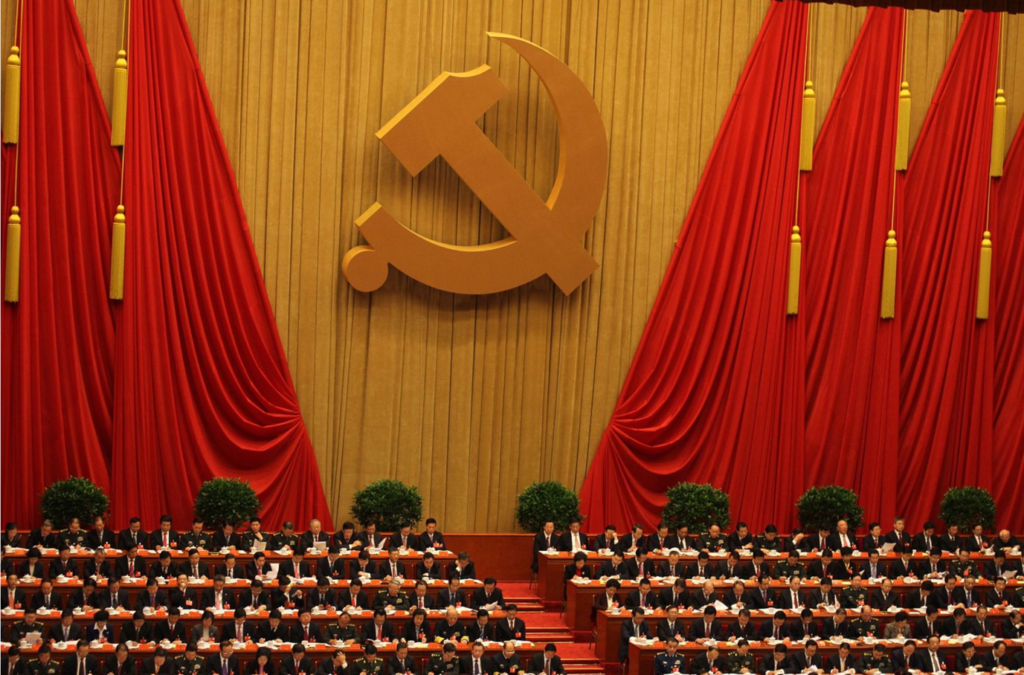
“This report contends that friendship associations are front organizations, entities tied to the Party via both direct and indirect channels. These fronts act as mouthpieces and intermediaries for advancing China’s domestic priorities and foreign policy goals,” which looks a lot more worrying. “They rely on co-opted elites drawn from Europe’s political class and business community to lead and to fill their ranks. The friendship groups are often disguised as homegrown organizations run by the host countries’ own citizens, including former and active politicians.” It basically suggests that China, by offering some little titbits along the way, is buying influence and that it may – and almost certainly will – call in the debt at a future time. “This study finds that the co-opted foreigners, who enjoy influence, convening power, and connections, serve the CCP’s aims in several ways, subtle and otherwise.” The report goes on to explain how. It makes chilling reading. “Co-optees parrot the Party’s talking points, deflect narratives harmful to Beijing’s image, host public events that showcase the Party’s virtues, promote trade and investment, encourage technology transfers, and voice support for changes in European policies favourable to China.” The CSBA believes that Europe, especially a divided Europe for whom the EU is proving less than overwhelmingly popular, makes an idea battleground for an aggressively expansionist China.
FRIENDS IN HIGH PLACES
Back in March 2021, the EU, together with the United States, Canada and the UK, imposed sanctions on China over human rights abuses. Beijing retaliated immediately. As always, it denied the alleged abuses, but it also imposed sanctions of its own that blocked approval of an investment deal between the EU and China that had only just been agreed.
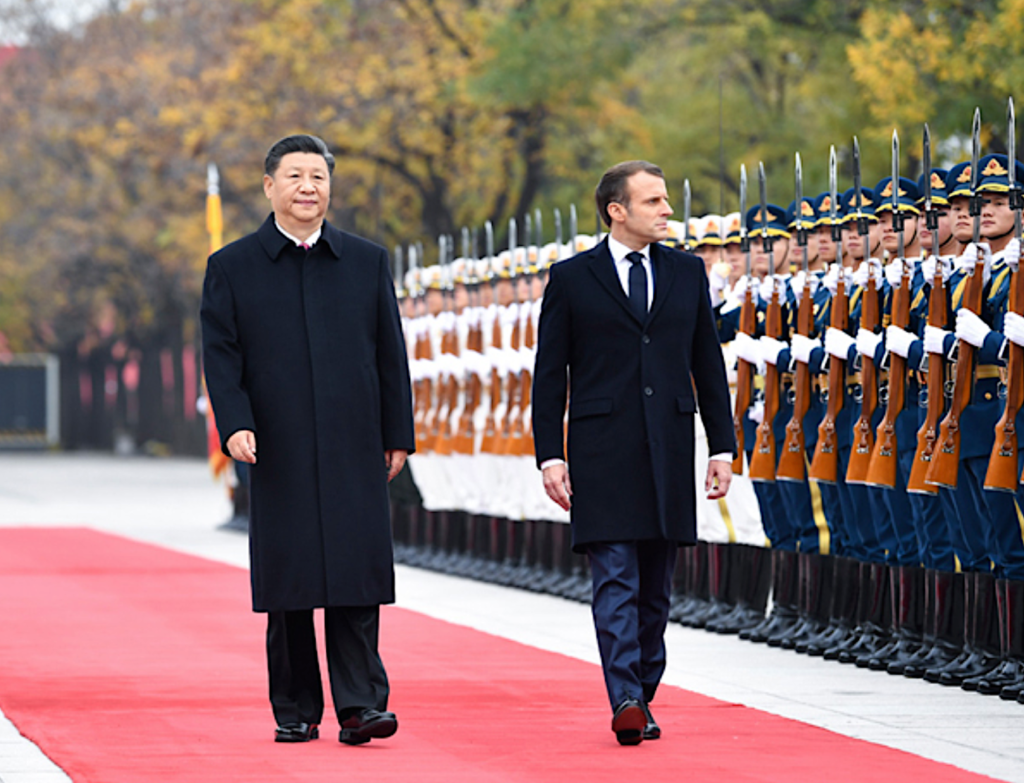
The EU’s influence has been further weakened by the agreement of the United States, Britain and Australia over the supply of nuclear submarines, thus subverting an agreement for France to supply conventionally-powered submarines to Australia. This was clearly an English-speakers’ deal, excluding those seen as “foreigners”. Emmanuel Macron was, understandably, furious, but we are left to wonder why the English-speakers should seek to weaken a ‘club’ on which some western countries rely, just in order to be linked with other English-speakers. Does a weaker Europe, for instance, boost the UK’s global standing? The deal, known as AUKUS(Australia, UK, US) has had the strange effect of giving China and France common cause, albeit from diametrically opposed viewpoints. Xi will be delighted to see a former bastion of Western trade and prosperity so brutally undermined from within. Perhaps it serves as a reminder of how the teaching of modern languages in the UK has deteriorated. It also gives China yet another excuse to flex its muscles and display its anger on a global scale.
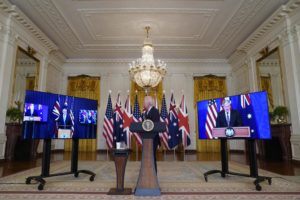
Certainly, the AUKUS deal shows a shift in policy that could have serious repercussions. After all, it comes shortly after the American withdrawal from Afghanistan, while both Britain and Australia have been showing signs of concern over Chinese ambitions in the Asia-Pacific region. AUKUS is not just about submarines. According to some observers, it’s about closer cooperation among the three allies on such topics as artificial intelligence, cyber intelligence, quantum physics research, underwater systems, and long-range strike capabilities. It has generated an enormous amount of commentary, much of it somewhat florid and over-heated. There are straightforward logistical reasons for Canberra to drop its €77.5-billion submarine deal with French-owned Naval Group (quite apart from the delays and frequent price-hikes) such as the fact that nuclear-powered subs have a longer range and can stay at sea for longer. Australia, after all, is a long way from anywhere else. Even one of its nearest neighbours, Indonesia, is 3,455 kilometres away, so long-range warships are essential. Papua New Guinea, just 150 kilometres away, is not exactly a world power.
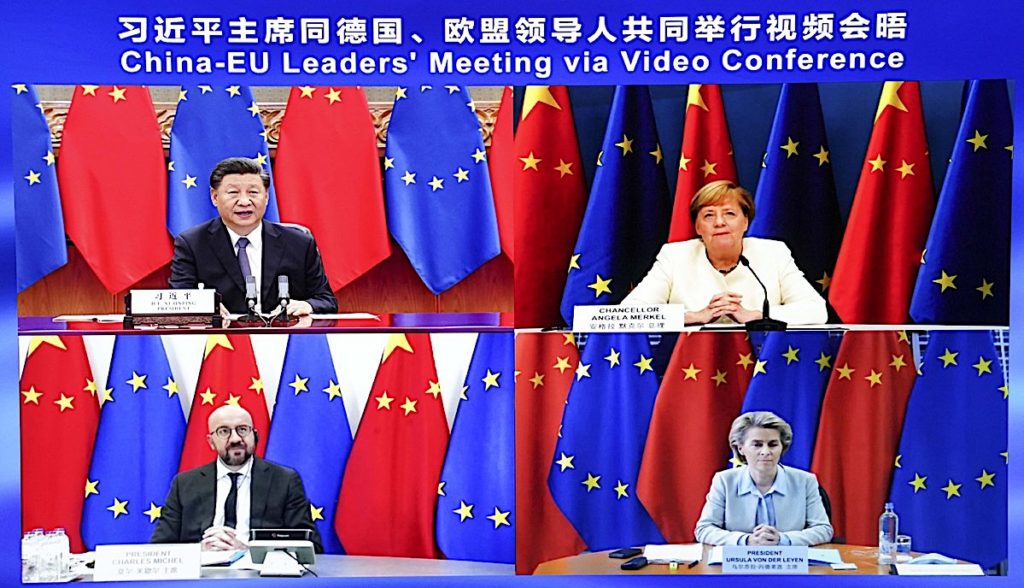
“Since assuming power in 2012,” said Patricia Kim, in a prepared statement to the House Permanent Select Committee on Intelligence at a US House of Representatives hearing on China back in 2018, “President Xi Jinping has clearly articulated his vision of the ‘Chinese dream’ which seeks to achieve the ‘great rejuvenation of the Chinese nation.’ Xi has vowed to ‘restore’ China’s historical influence and status by transforming China into a moderately prosperous state by 2020 and a rich, strong, and fully-developed great power by 2049.” China’s aggressive expansionist policy is causing a great deal of concern in such places as Japan and Taiwan. Over recent months, the United States has made more frequent transits through the Taiwan Strait, just to show that the island remains important to Washington and that the US is still committed to the island and a peaceful resolution of the tensions between Beijing and Taipei over Taiwan’s future. Deputy US Secretary for Defense Kathleen Hicks pointed out that Australia, with its own worries about an expansionist China, has no interest in using the recent AUKUS agreement as a way to develop its own nuclear weapons. She said the Australians view the agreement as ‘a means to improve their submarine fleet through nuclear propulsion’, which will give it greater range and more stealth, matching the growth in China’s own attack and ballistic missile submarine fleet. Recently, China sent military aircraft into Taiwan’s air defence identification zone, in what was the third largest incursion of the last two years. Among them were four H-6 bombers, capable of carrying nuclear weapons, and an anti-submarine aircraft.
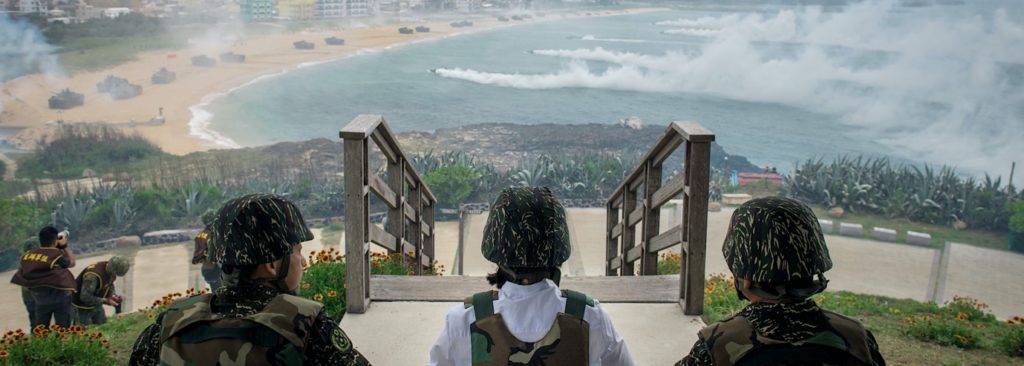
China is pledged to reuniting China into one single country, with Taiwan as just one part of it, despite it currently having its own government, currency and armed forces. It was to Taiwan that the Kuamintang nationalist forces withdrew following their defeat by Mao’s People’s Liberation Army and Xi has promised to get it back, by force if necessary. Taiwan’s defence minister, Chiu Kyo-cheng, has said that China will be ready to make a full-scale invasion by 2025 and meanwhile China’s provocative incursion will continue, partly to scare the Taiwanese, partly to stress Taiwan’s air force. The US has pledged to defend Taiwan, but relatively few countries recognise its full independence. Attempts at brokering a peaceful solution continue, more in hope than expectation, with Chinese diplomat Yang Jiechi scheduled to meet US national security advisor Jake Sullivan in Zurich. At the time of writing, no firm date has been fixed, although the Chinese delegation has already arrived in Zurich, so it should be soon. Xi Jinping will not be happy until his (and Beijing’s) dream of ‘one China’ is fulfilled.
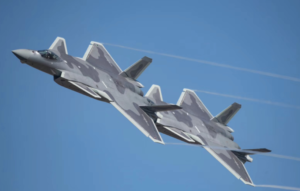
For the first time, On July 3rd 2018, soldiers of the Chinese People’s Liberation Army participated in the traditional military parade to celebrate Independence Day along with Russian servicemen. Image onliner.by
Meanwhile, despite its rapid trade growth, not everything in China’s economic garden is coming up roses. There are plenty of weeds, such as the huge property developer, Evergrande, which seems to have badly overstretched itself, tapping into the world’s bond markets some forty times over the last four years, amassing hundreds of billions of yuan in bank loans it may never be able to repay. It now risks going under with debts of US$37-billion (€32-billion) and earning itself the unenviable title of the world’s most indebted property developer. The company once hired the martial arts star Jackie Chan to help it to sell its mineral water, but it will take more than a few drop kicks and cries of “Aiyeee!” to get it out of its current mess. The European Court of Auditors, an EU body, has its worries about China’s ambitions, partly because of China’s rather secretive approach. “Different sources indicate that Member States often act bilaterally with China according to their own national interests and without always informing or coordinating with the Commission where necessary,” says the latest report. “As a result, it is in certain areas difficult for the EU institutions and Member States to have a coordinated response.”
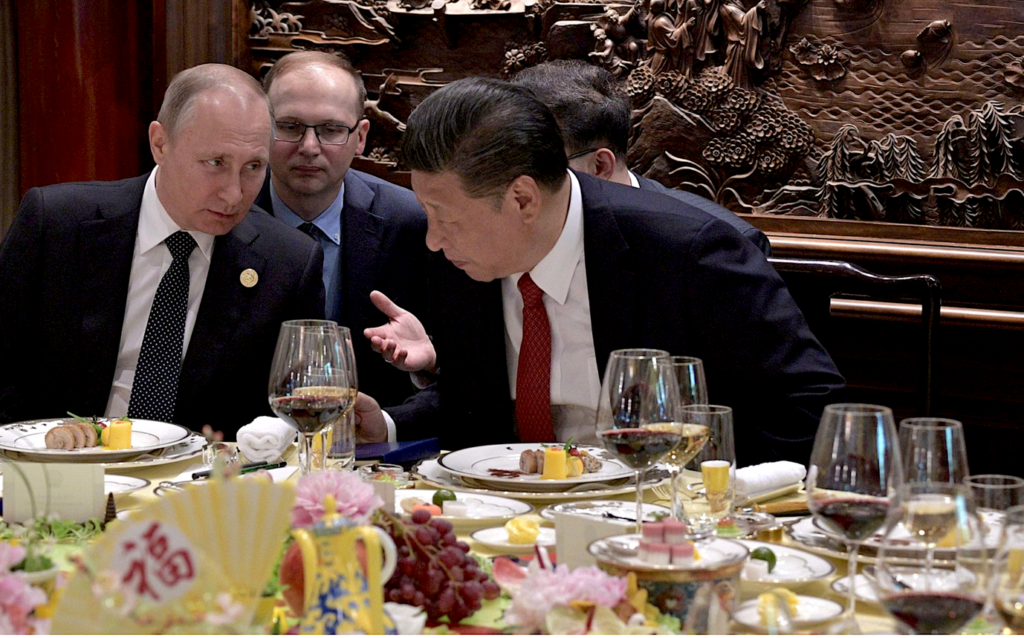
Beijing not only plays with its hand kept hidden close to its chest, it sometimes seems to pretend it’s not even in the game at all. “Chinese economic and trade policies are characterised by several strategies for development where state-driven investments have enabled China to become a global player in economic terms,” the report says. “These encourage Chinese enterprises to invest abroad, especially in strategic sectors (e.g. energy, telecom and railway systems), with State-Owned Enterprises (SOEs) benefitting from Chinese public financing. This can distort competition notably in the EU’s internal market as China’s SOEs are not subject to EU’s state aid rules. The EU is committed to ensuring that there is a level playing field for EU companies that have to compete with Chinese companies.” And that’s without mentioning the Belt and Road Initiative.
DUNGEONS AND REAL DRAGONS?
The popular board game Dungeons and Dragons first saw the light of day (or the gloom of the supernatural) in 1974, since when it has inspired movies and worldwide cross-border competition among its millions of fans. It’s all about players choosing a character and then embarking on fantastical adventures, one against another, with no real “outright winner”. It’s just the enjoyment of taking part, for the real aficionados. However, if we’re talking about the competition among nation states as they struggle to assume a superior position vis-à-vis their opponents, then winning matters and winners are easily identified. Where does that position our Yázì-Chīwěn (睚眦-螭 吻) hybrid dragon, Xi Jinping’s very own, tailored to match his character type? I have no idea. We should recall that a game of Dungeons and Dragons may not have any clear-cut ending at all, just a lot of posing and waving the latest weapon about, which is pretty much what happens in international diplomacy, after all. I reckon that the British fantasy writer J.R.R. Tolkien has a lot to answer for, don’t you, Bilbo?

